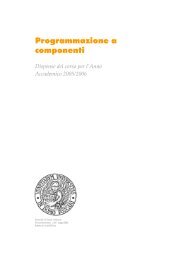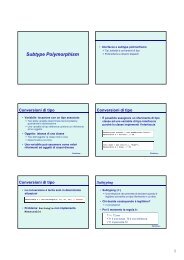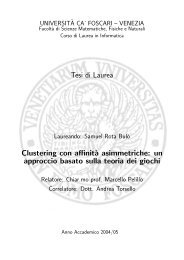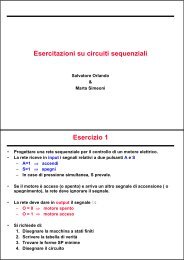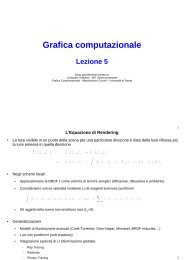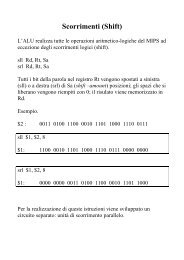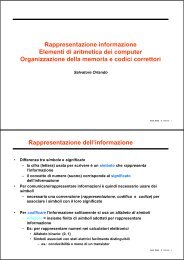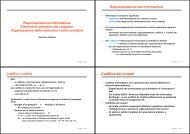Foscari - Dipartimento di Scienze Ambientali, Informatica e Statistica
Foscari - Dipartimento di Scienze Ambientali, Informatica e Statistica
Foscari - Dipartimento di Scienze Ambientali, Informatica e Statistica
Create successful ePaper yourself
Turn your PDF publications into a flip-book with our unique Google optimized e-Paper software.
First tip: remember interviewers are often nervous too! Their first priority is to get the job filled with<br />
the most suitable person and that can often bring its own anxieties.<br />
Know the job<br />
Study the job specification – it is not just an advert for the vacancy; it is telling you what they are<br />
looking for. You can use this as a guide to the areas that you are likely to be questioned about.<br />
What skills are required? What technical and subject knowledge are they expecting? What are the soft<br />
skills like team working, planning, organising, influencing and persua<strong>di</strong>ng?<br />
Once you are clear on these, think through the examples that best demonstrate your skills and<br />
experience. Write these down. Your most relevant examples might be from your current or previous<br />
job. If you do not have anything appropriate, consider school and college work, work experience and<br />
hobbies that might make useful demonstrations.<br />
Find someone to chat to about the job. Sometimes a contact will be given on the advert – if so, call<br />
them. If not, phone the company’s recruitment team and ask who you can talk to.<br />
If you are going for a job in the same organisation where you already work, is it possible to work<br />
alongside someone for an afternoon in the area you have applied for? The job specification is a great<br />
start but talking to people in the job, or even better shadowing them, will put you ahead of the crowd.<br />
Know the industry<br />
Keep up with what is happening in the industry. Read the industry magazines and websites.<br />
The practicalities<br />
When and where is the interview? Turning up late and sweaty will give you a bad start. Make sure you<br />
have clear <strong>di</strong>rections and give yourself plenty of time to get there. If you are going somewhere<br />
unfamiliar, can you dry run the journey?<br />
Find out who is interviewing you – who are they, what are their job titles? Google them. Make sure you<br />
have the right people but do not freak them out by demonstrating an intimate knowledge. Just knowing<br />
something of who they are might help you include something in your interview that will interest them<br />
in particular.<br />
Dealing with nerves<br />
If you get seriously nervous, then arrive in plenty of time. Find somewhere quiet and do some<br />
breathing exercises. In the interview, take your time and do not rush to answer a question. Just pause,<br />
let the question sink in and then answer.<br />
Remember, it is a two-way conversation, so participate – try to actively listen to what is being asked<br />
and if you are unclear, ask for clarification. If you feel you have given a bad example, then come back<br />
with another until you feel you have answered the question fully.<br />
60



